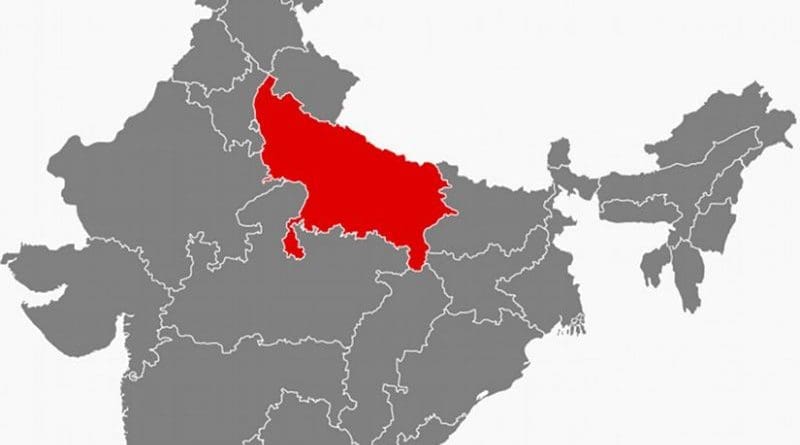Eid Means Mourning – OpEd
In the wake of a stunning electoral setback for Prime Minister Narendra Modi’s Hindu nationalist Bharatiya Janata Party (BJP), India has seen a surge in anti-Muslim violence. This unsettling trend has raised significant concerns about the country’s commitment to secularism and the safety of its Muslim minority.
For Zakia Wali, Eid has forever lost its joy. Instead, the Muslim festival now stands as a grim reminder of the brutal lynching of her elder brother, Mohammad Fareed, in their hometown of Aligarh. Fareed, a tandoori roti maker, was savagely beaten to death by a mob of Hindu hardliners armed with wooden sticks and iron rods. The mob’s brutality was captured on bystanders’ phones, highlighting the horrific violence that Muslims in India increasingly face. “We couldn’t even give him a proper burial,” Wali recalled, her voice breaking with grief. “Eid will only mean mourning now.”
Aligarh, with a population of 1.2 million, is in Uttar Pradesh, India’s most populous state, ruled by the BJP. Under Modi’s decade-long administration, attacks on Muslims have escalated. The recent national election saw the BJP lose its parliamentary majority, a result many hoped would mark a return to India’s secular roots. However, the immediate aftermath has been marked by a surge in anti-Muslim violence, indicating that the election outcome has done little to curb the influence of Hindu extremist groups.
Analysts like Ali Khan Mahmudabad, a political scientist at Ashoka University, argue that it is a mistake to interpret the election results as a victory for secularism. Despite the BJP’s loss, the number of Muslim representatives in parliament remains historically low. Mahmudabad predicts that anti-Muslim violence will continue to rise, used as a distraction from pressing national issues like unemployment and inflation.
The lynching of Fareed is a stark illustration of this violence. On his way home after Eid, Fareed was attacked by a mob, dragged through the streets, and beaten to death. Mohammad Zaki, Fareed’s brother, recounts the horror of being shown videos of his brother’s lifeless body by neighbors. The attackers, also locals, highlight the terrifying reality that communal violence can erupt within one’s own community. “I’m so scared that these kinds of people live among us in the same society,” Zaki said. “They were just thirsty for Muslim blood.”
Aligarh police have arrested six people in connection with Fareed’s lynching, charging them with murder. However, the accused claim Fareed was a thief, an assertion his family vehemently denies. Mushtaq Ahmed, a childhood friend of Fareed, describes him as a peaceful man who never engaged in criminal activities. “They are just lying because they have committed a horrifying crime,” Ahmed said. In a disturbing turn, the BJP and far-right groups staged a protest demanding the release of the accused, shutting down the town. Shakuntala Bharti, a prominent BJP leader, defended the mob, suggesting that violence was justified if a Muslim man was suspected of theft.
This rhetoric is part of a broader pattern of state-sanctioned intolerance. In BJP-ruled states, homes of Muslims suspected of crimes are often bulldozed without due process, a practice Amnesty International has condemned as punitive. For Wali, these justifications are irrelevant. “Even if he was a thief, slap him and hand him over to the police,” she said. “Why kill my brother like savages?”
The violence has left deep scars on Muslim communities. Wali now cares for her 70-year-old mother, Zubaida, who is bedridden and suffering from paralysis. Fareed was her primary caregiver, and his death has left the family struggling. Since Fareed’s death, Wali says the trust between Muslim and Hindu neighbors has been shattered. “We feel terror in Aligarh now, scared of our own neighbors,” she said. “Eid is our biggest festival, but now, Eid will only remind me of the sacrifice of my brother.”
The violence is not confined to BJP-ruled states. In Nahan, Himachal Pradesh, governed by the Congress party, a mob attacked Muslim-owned shops after a photo of an animal carcass was posted online. The police later confirmed the animal was not a cow, but not before arresting the shop owner for “hurting religious sentiments.” “The silence of the opposition leaders on attacks on the Muslims is deafening,” said Nadeem Khan, national secretary of the Association for Protection of Civil Rights (APCR). He argues that opposition parties have shifted rightward to align with the BJP’s Hindu nationalist agenda, leaving Muslims feeling abandoned.
The recent spate of anti-Muslim violence following the election results reveals a grim reality: the battle for India’s secularism is far from over. While the BJP’s loss may seem like a setback for Hindu nationalism, the subsequent violence suggests that extremist elements remain deeply entrenched in Indian society. For Muslims like Zakia Wali, the promise of secularism remains elusive. Her brother’s death is a stark reminder of the dangerous climate of intolerance that pervades the country. As India grapples with its identity, the need for genuine secularism—where all citizens, regardless of religion, can live without fear—has never been more urgent.

